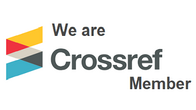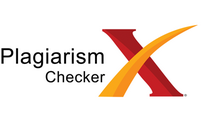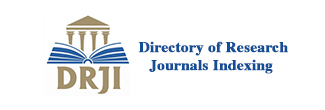- Focus and Scope
- Section Policies
- Peer Review Process
- Publication Frequency
- Open Access Policy
- Publication Ethics
Focus and Scope
Jurnal Komunikasi dan Kajian Media focuses on writings that contains research and contemporary thinking in the field of Communication Studies in various angles/perspectives. include:
1. Strategic Communication
Public Relations, Marketing Communication, Advertising
2. Media Studies
Mass Communication, Journalism, Cultural Studies, Media and Gender, Political Economy of the Media
Section Policies
Articles
Editors- Formas Lase
- Sukma Ragil Putri
Peer Review Process
The journal employs a peer-review mechanism where each submitted article should be anonymously reviewed by expert peers appointed by the editor. All manuscript submissions will be initially screened whether the manuscript has followed journal scope and author guidelines. All submitted manuscript will be screened using iThenticate for plagiarism checking before being sent to reviewers. Manuscript exceeding 30% in a plagiarism check will be automatically rejected.
The manuscript will be sent to the section editor and will be reviewed by at least two anonymous reviewers. Every manuscript submitted to the JKKM will go through an Editorial Review and Double-Blind Peer Reviews. The decision on one manuscript is made by the Editorial Board meeting. The decision would be based on the advice from the reviewers and could be categorized into (1) Acceptable for publication without changes; (2) Acceptable for publications after minor revisions; (3) Acceptable for publication after major revisions; (4) Not acceptable for publication, but author(s) should be encouraged to resubmit; and (5) Reject.
Publication Frequency
Jurnal Komunikasi dan Kajian Media (JKKM) is scheduled for publication two times a year, April and October.
Open Access Policy
Jurnal Komunikasi dan Kajian Media (JKKM) provides immediate open access to its content on the principle that making research freely available to the public supports a greater global exchange of knowledge. All articles published Open Access are immediately and permanently free for everyone to read and download.
Publication Ethics
AUTHOR ETHICS
- Reporting. Author must present the results of research and articles honestly and clearly, without any data manipulation. The Article must clearly include the source of the citation by JKKM journal writing guidelines.
- Originality and plagiarism. Author must ensure that the article sent to the editor is original, sourced from their own ideas and writings, and not traced in part or in full from another article. Other relevant publications and used as references, both others articles or the writers themselves, should be cited in the writing.
- Repeat publishing. Author must guarantee that the articles sent to JKKM has never been published in a journal or other publication (chapters in books, articles in newspapers and so on). If the article sent to JKKM has previously been sent to another journal but has not been published, the author must include a letter of revocation of the article from the previous journal.
- Citation. Author must ensure that all data used, citations referred to in the article have been checked and clearly stated the source of the citation. If the data or source used requires permission from the institution or the original author, author must take care of it before sending the article to JKKM.
- Writing mistake. If author discovers writing errors, such as mistake in citing sources, error in presenting data and so on, author must immediately contact JKKM editor before the article is published. Errors discovered after the articles is published are the sole responsibility of the author.
- Conflict of interest. Author may have a conflict of interest in the form of funding, employment, political affiliation or other conflicts of interest related to the research conducted. For example, the researcher examines the company where the author works, or examines a company that happens to be the main sponsor of the research. Author must state the possibility of a conflict of interest honestly which more or less influences the results of the article.
EDITOR ETHICS
- Objectivity. Editor ensures that the editing process is conducted purely with scientific and academic considerations.
- Transparency. Article review process should be conducted transparently. The editor's decision to accept, reject or return an article to be revised by the author is accompanied by clear reasons. The editor must guarantee that the authors have the right to be given information openly about the status of their articles, process and reasons for an article to be accepted, rejected or corrected.
- Information of publication and review process. Editor must ensure that writing guidelines for authors can be accessed easily, both print and electronic. Editor also provides review guidelines for reviewers.
- Fair play. Editor ensures that the decision to edit an article includes deciding whether to accept or reject the articles, based on purely scientific considerations, regardless of gender, religious background, ethnicity, political affiliation and so on. If articles must be selected due to consideration of limited allocation of journal page, the choice of article is based on objective considerations regarding the quality of the articles.
- Unpublished articles. Editor must notify authors if their articles cannot be published by JKKM. Editor is not allowed to use data or article that is not published for other purposes without the authors’ permission.
- Confidentiality. Review process is conducted in a blind reader. Editor must ensure that they do not notify the reviewer about the authors being reviewer. Editors must guarantee the confidentiality of both the author and data in the articles.
REVIEWER ETHICS
- Objectivity. Reviews should be conducted objectively with academic and scientific considerations. Review process is carried out objectively and professionally regardless of gender, religious background, race, ethnicity, citizenship, political partnership and so on.
- Transparency. Article review process should be conducted transparently. The decision to accept, reject or return the article to be revised by the author, is accompanied by clear reasons. If an article is decided to be rejected, reviewer gives a clear reason for being rejected. If an article is decided to be revised by the author, reviewer points out the part that must be revised so that it can be a guide for the writer to improve the article.
- Reference source. Peer review must ensure that the articles reviewed have met good writing standards. Reviewer must check whether the reference sources have been cited correctly. If there is a citation error, reviewer notifies the editor.
- Originality and plagiarism. Articles issued by JKKM must be free from plagiarism. Reviewer can notify JKKM editor if there is an indication of the plagiarism of the article that was examined. Editor must confirm and further examine the plagiarism indication found by the reviewer.
- Conflict of interest. Reviewers tell the editor honestly if they happen to be reviewing an article that has a conflict of interest with them. Such as the author is their colleague, involved as a research team member, the topic written is the institution where the reviewer works and so on.
- Deadlines. Reviewer must complete the article review process according to the agreed time, which is in 2 weeks. If reviewer needs additional time or is likely to not be able to complete the review process on time, they must notify the JKKM editor.

.jpg)






1.png)


.png)

